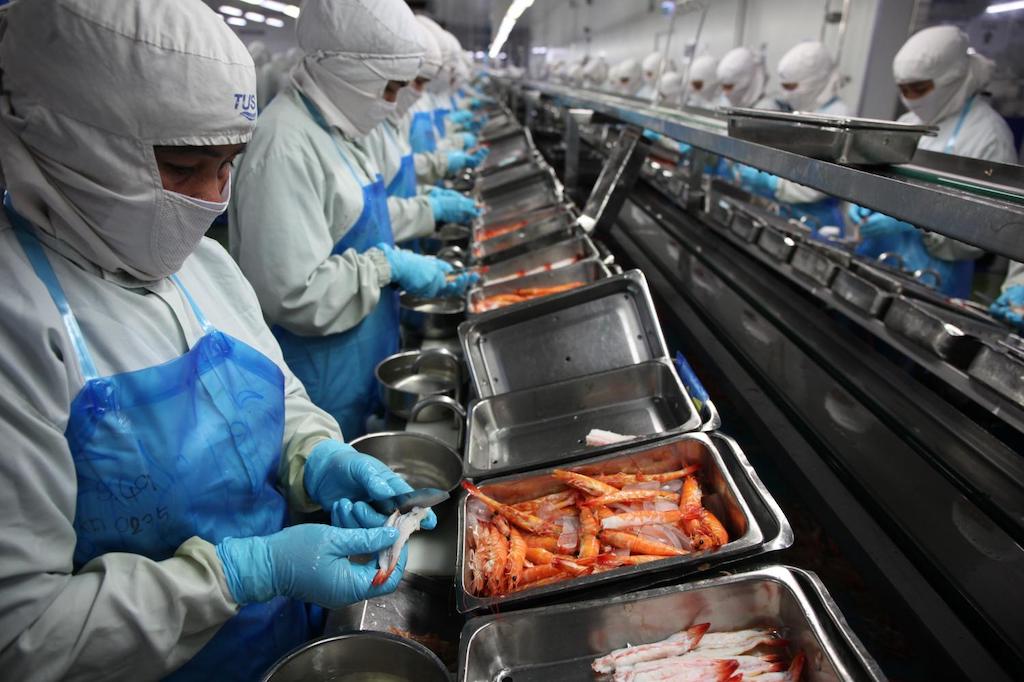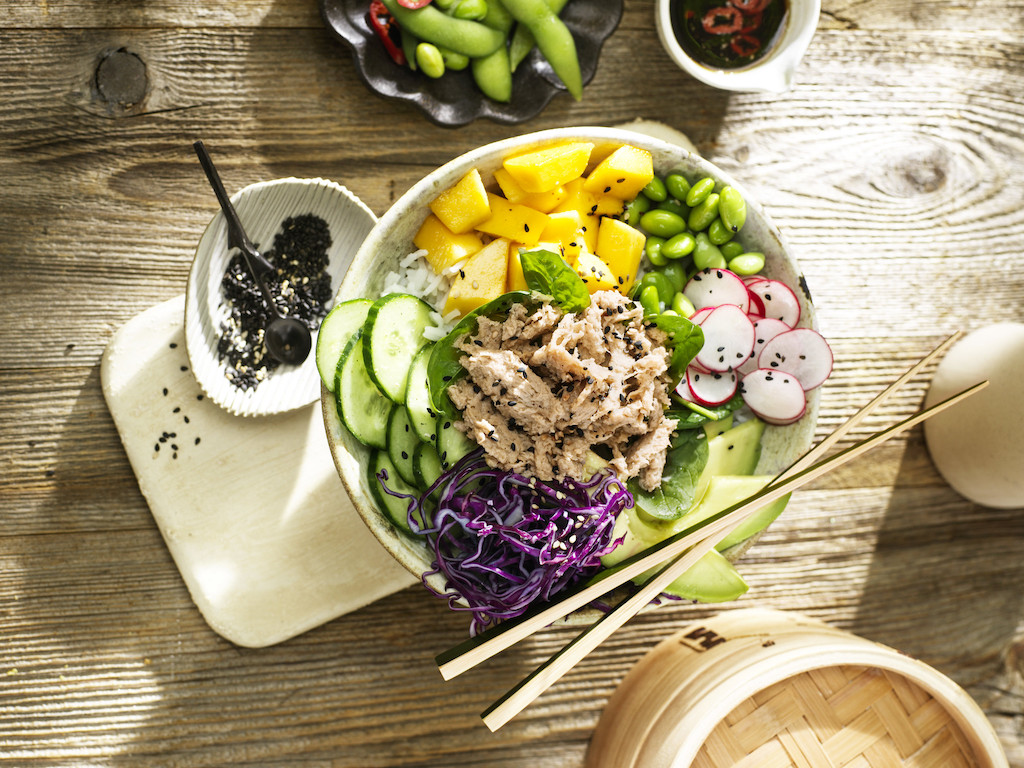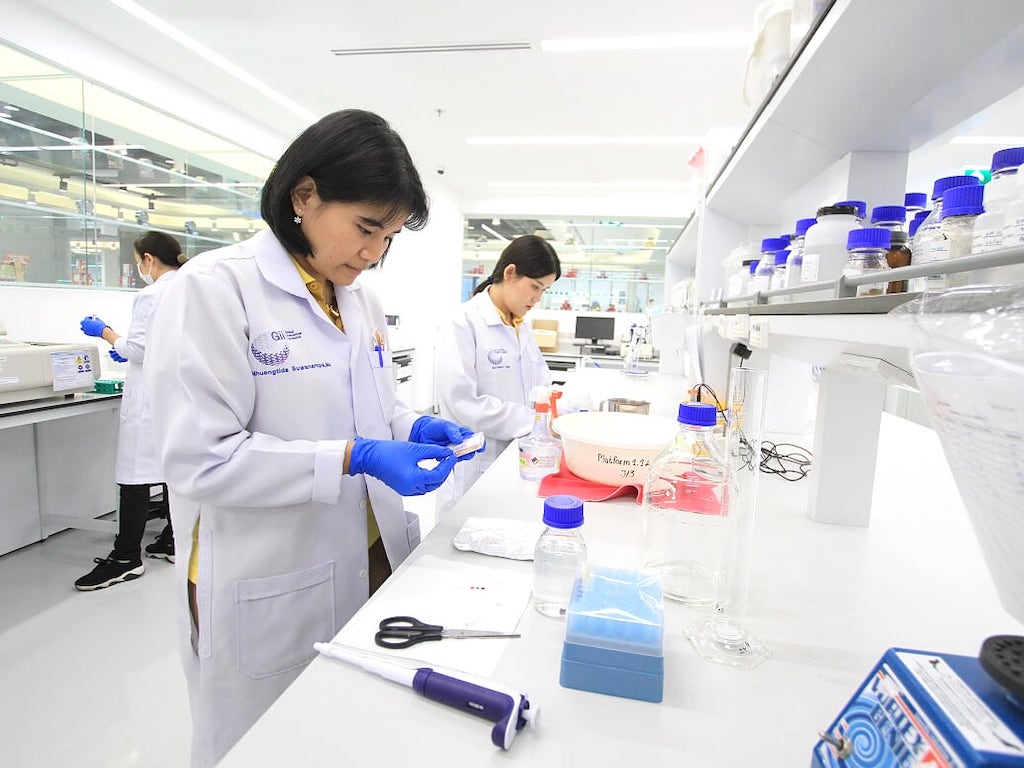Seafood Giant Thai Union To Launch Plant-Based Shrimp This Year
4 Mins Read
Thai Union, one of the biggest seafood producers globally, has revealed its plans to launch plant-based shrimp in 2021 as it pivots in response to demand from consumers. The company made its first foray into plant-based seafood last year, and says it will be continually developing more fish-free alternatives, which will primarily cater to foodservice channels.
Thai Union Group will be releasing its new plant-based shrimp product this year, the group’s innovation director told seafood industry news platform Undercurrent News in a recent interview. Describing the new product that is slated to launch “within this year”, Tunyawat Kasemsuwan says it “tastes exactly like shrimp tempura, but made without shrimp”. No details on what ingredients it will be made from were revealed.
The company, which is the world’s largest canned-tuna processor and a leading global supplier of seafood products to the U.S. and Europe, says that its decision to expand into the plant-based market comes in response to consumer demand, mainly from the rising flexitarian trend.
They come to us because they see we understand product quality, its functional properties, characteristics, taste, and sensory texture.
Tunyawat Kasemsuwan, Group Director, Global Innovation Center, Thai Union Group

“We have had consumers come to us and say, ‘I know you are an expert in seafood and shrimp – I would like to have a shrimp tempura, but not containing shrimp’,” said Kasemsuwan. “They come to us because they see we understand product quality, its functional properties, characteristics, taste, and sensory texture.”
Thai Union’s upcoming plant-based shrimp debut will follow its initial introduction of plant-based products into the market in late 2020, which include plant-based crab cakes and dim sum, mainly through foodservice channels. While the company’s plans have been partially delayed due to coronavirus-related travel restrictions, Kasemsuwan said in the interview that the firm has set its sights on targeting international markets.
“Hopefully this year you will see even more products, around the world, [that are] plant-based from us. Shrimp should be in a few months.”
As of now, retail products do not appear to be on the cards for the seafood giant, in order to avoid consumer confusion about its famous seafood subsidiary labels, which include John West, Ayam, King Oscar and Chicken of the Sea.
“We’re known as seafood brands. You don’t want to buy John West and then and then find out it’s [made from] plant, not tuna. We have to be careful when we do something outside of a brand’s core. So we’re still investigating how to extend our brand qualities to non-seafood products,” explained Kasemsuwan.
But what the move from Thai Union does indicate is that the mass demand can no longer be ignored, with the risk of missing out on the huge business opportunities to be made in the plant-based sector – which is showing no signs of slowing down.

Hopefully this year you will see even more products, around the world, [that are] plant-based from us. Shrimp should be in a few months.
Tunyawat Kasemsuwan, Group Director, Global Innovation Center, Thai Union Group
Recent studies have pointed out that the pandemic has prompted many omnivores to opt for plant-based versions of their favourite animal-based foods for the first time and that this trend is set to last with a whopping 92% of first-time buyers saying they plan on keeping up this habit even when the coronavirus crisis is over.
Seafood alternatives in particular remain an untapped market within the broader plant-based sector, given the forecasted data suggesting that consumers are choosing to displace red meat for fish, though brands are quickly rising to fill the gap.
Other major food players that have launched plant-based seafood in recent months include Swiss conglomerate Nestlé who debuted its vegan tuna in 2020, followed by major European plant protein supplier Schouten, who rolled out its “TuNo” product last month. Seafood giant Bumble Bee Foods, on the other hand, has taken to backing plant-based startup Good Catch Foods to widen its net.
Lead image courtesy of Thai Union.




